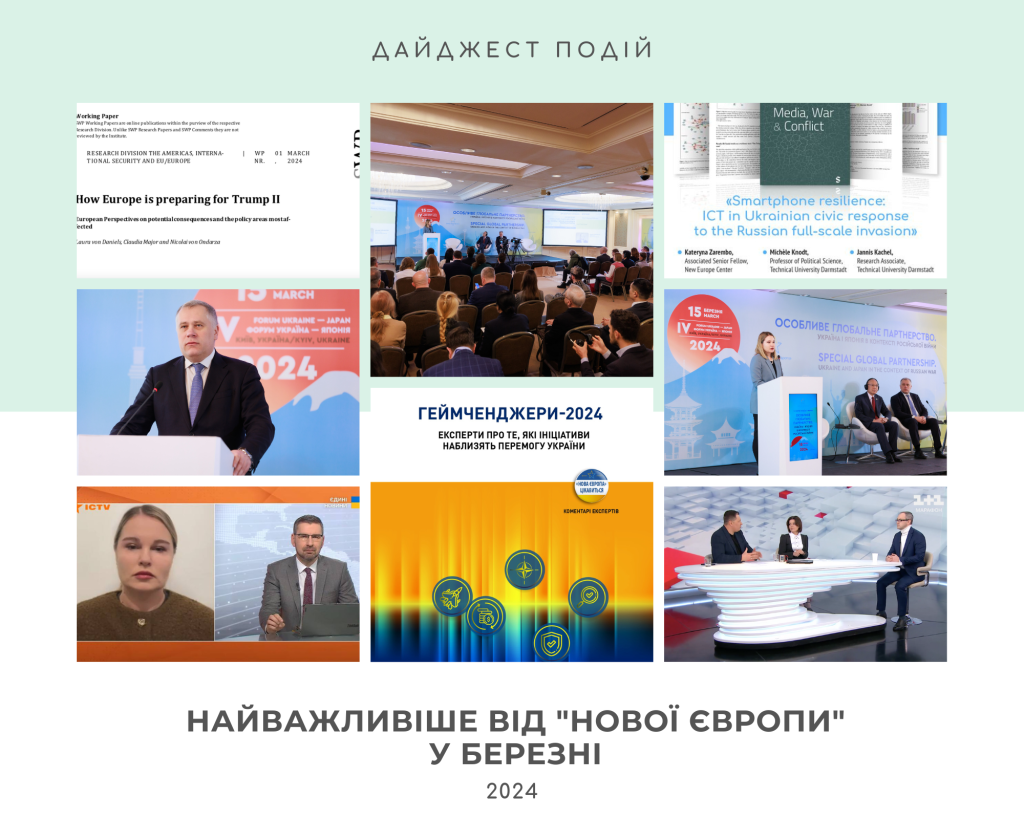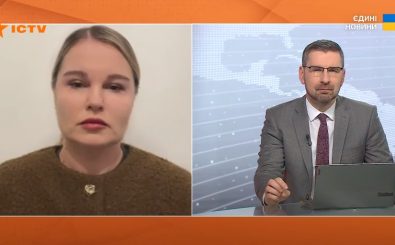We bring to your attention the key messages of the speakers during the discussion panel #3 “From special to really special. How to upgrade Ukraine-Japan partnership according to new status of relations?”:
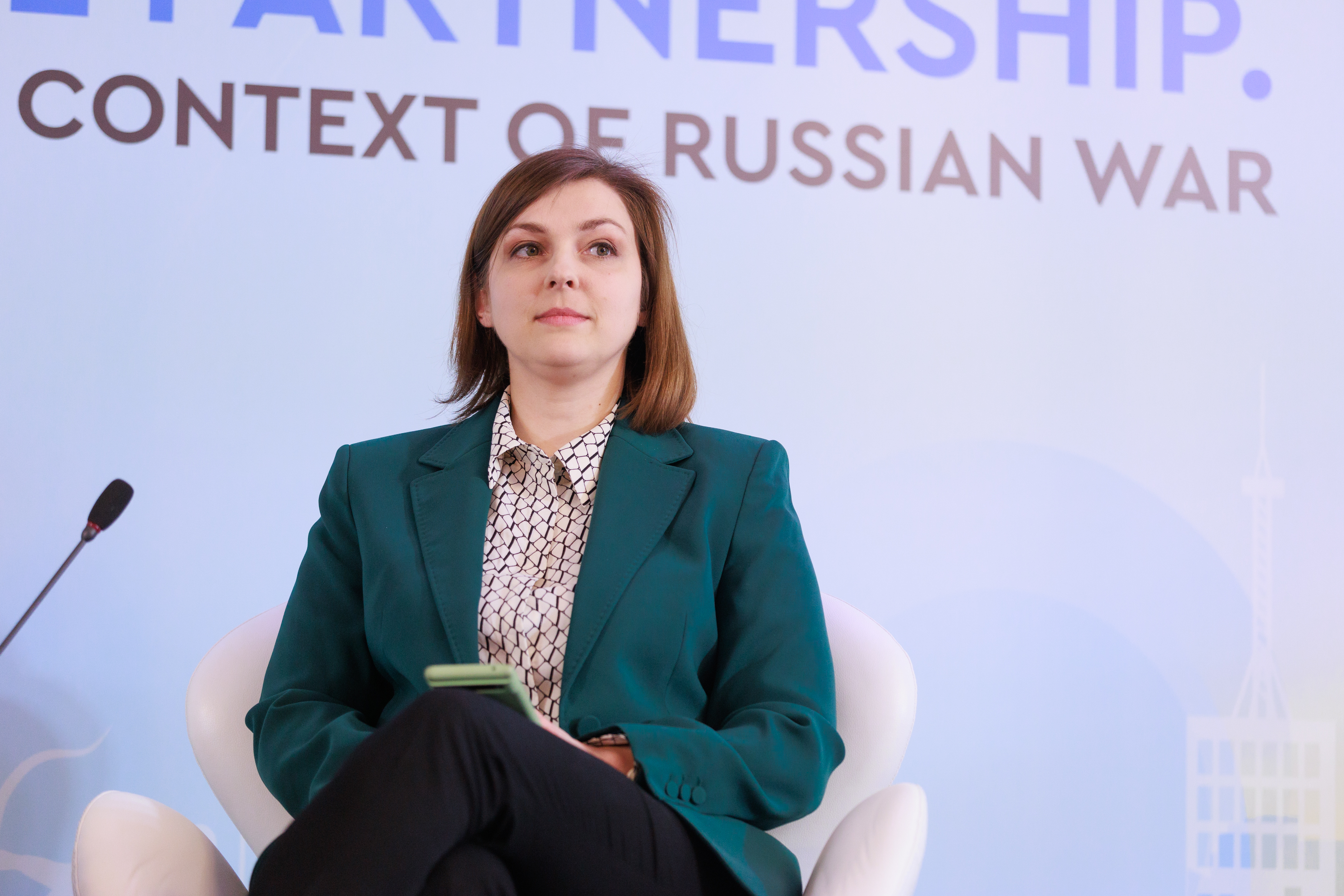
Olena Halushka, Co-Founder of International Center for Ukraine’s victory (ICUV) Member of Board of Anticorruption Action Center (ANTAC):
Japan does not need to be convinced why it is necessary to support Ukraine and why Ukraine should win. After all, its victory will be important not only for Europe, but for the whole world, including the Indo-Pacific region.
It is necessary to note the special role of Japan. The work upon Plan B for Ukraine is continued, when systemic long-term support will not depend on the internal political processes of partners.
One of the big priorities now is the Russian assets confiscation. Now there are major track negotiations within the Group of 7 countries, where the United States, Britain and Canada support this idea, European countries, and Japan, which are still more skeptical about this. This is a very important step, because there is a general consensus, there is a decision of the G7 countries that these funds will not return to Russia until the Russian Federation pays reparations.
Regarding the legality or illegality of confiscation of these assets, a group of international lawyers, including Professor Shotaro Hamamoto of Kyoto University, wrote a detailed memorandum and a briefed version that confiscation would be a legitimate countermeasure in response to Russian aggression. How, for example, freezing assets became a countermeasure in the early days of a full-scale invasion.
Russia has damaged Ukraine by almost half a trillion dollars. Therefore, it is absolutely logical and correct that the countermeasure should be intensified in order to stop the aggression and force the offender to return to the implementation of generally accepted norms.
There are opinions from partners that this confiscation will create an even greater gap between Western countries and countries in Africa, Latin America, Asia. Because the latter will consider that their assets can be taken away in case of some minimal error. This is not true, because the standards violated by Russia are already so high that this is not a minimal error: starting with the violation of the Budapest Memorandum, ending with such terrible crimes as the deportation of children.
Another argument that often sounds is the loss of foreign business assets in Russia. However, this process began at the beginning of a full-scale invasion and takes place further. So, from April 2023, assets are directly expropriated, calling it temporary management to make it harder for companies to go to international tribunals.
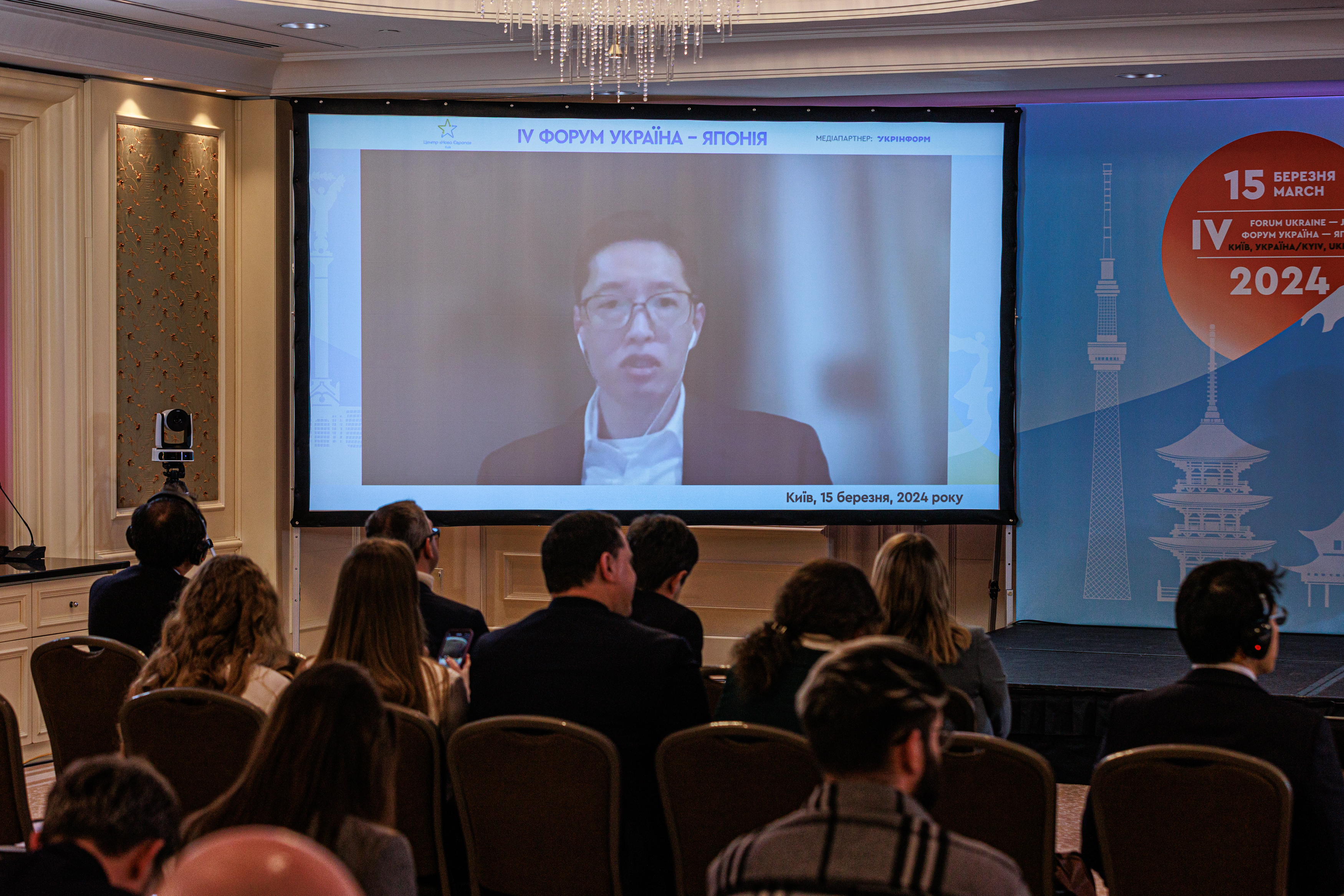
Daisuke Kitade, Senior Analyst, Mitsui&Co. Global Strategies Studies Institute:
Japan is the only country that has repeatedly recovered after the war, then after a major earthquake. Everyone remembers the 2011 Fukushima earthquake and accident – the country recovered after that. No one has such experience. Therefore, there is hope that Japan will play a natural role in the process of Ukrainian reconstruction.
On February 19, the Conference on Reconstruction was held in Tokyo, the main results of which:
1. Financial instruments for business development and implementation of projects in Ukraine. For example:
● Agreement on granting Ukraine a grant of 15.8 billion Japanese yen for rapid recovery.
● Allocation of up to $150 million loan to the Black Sea Trade and Development Bank by the Japan Bank for International Cooperation (JBIC) for Ukraine’s recovery projects.
And other tools, such as loans, insurance.
2. Measures to enhance human exchanges. For example:
● Easing of restrictions for Japanese citizens to travel to Ukraine. It really was a long-awaited event for Japanese businessmen
● Opening of the office of the Japanese foreign trade organization JETRO in Kyiv.
3. Subset of more than 50 documents on cooperation between representatives of the two countries. The vast majority of signatories from the Japanese side are startups. There are only seven big companies. Therefore, the question arises – where are the other large Japanese companies, why are they not very active? Because the conference was attended by more than 80 Japanese businesses, including many major players.
The Japanese are frightened not only by war and uncertainty. But the fear of losing property or business in the Russian Federation plays the role. That is, there is a binary approach – either business in Russia, or reconstruction in Ukraine. This approach is very common and typical for Japanese companies.
As for these seven large companies that signed the memorandum, six of them either reduce business in Russia, or have already left the market of Russia. Only one company continues business as usual, and this company, it turns out, is an exception. And so we see a certain trend here. Or-Or.
It is important to involve large Japanese companies in the reconstruction process. They set the tone for the whole business in Japan, they are trend setters. Large companies can bring medium, small companies with them to Ukraine. In Japan, they say: “If you go to a red light with everyone, it’s not scary”. And now it turns out that there are only startups and seven samurai.
Without the participation of major players, these new financial instruments and the easing of restrictions on travel to Ukraine may be wasted.
Fortunately, almost all large companies in Japan attended the conference. That means they are at least interested.
There are three suggestions for overcoming this binary approach:
- Appoint a special representative of Japan for reconstruction. Such officials are in France (Pierre Heilbronn) and the United States (Penny Pritzker). Japan also needs such a respected person who will convince everyone.
- Launch of an information campaign on the activities of foreign companies in Ukraine, in which sectors of reconstruction they work, tell in detail about projects, etc.
- The implementation of these promising projects, which were agreed on February 19. And to show that reconstruction is not only a help, but also an investment in the future. We must show that you can earn money in Ukraine.
Japanese-Ukrainian relations are now at an unprecedentedly high level. But relations must be improved in all areas. From a business point of view, so far there are very few successful stories. The implementation of all projects signed at the Tokyo Conference will significantly improve the interaction between the two parties, including business.
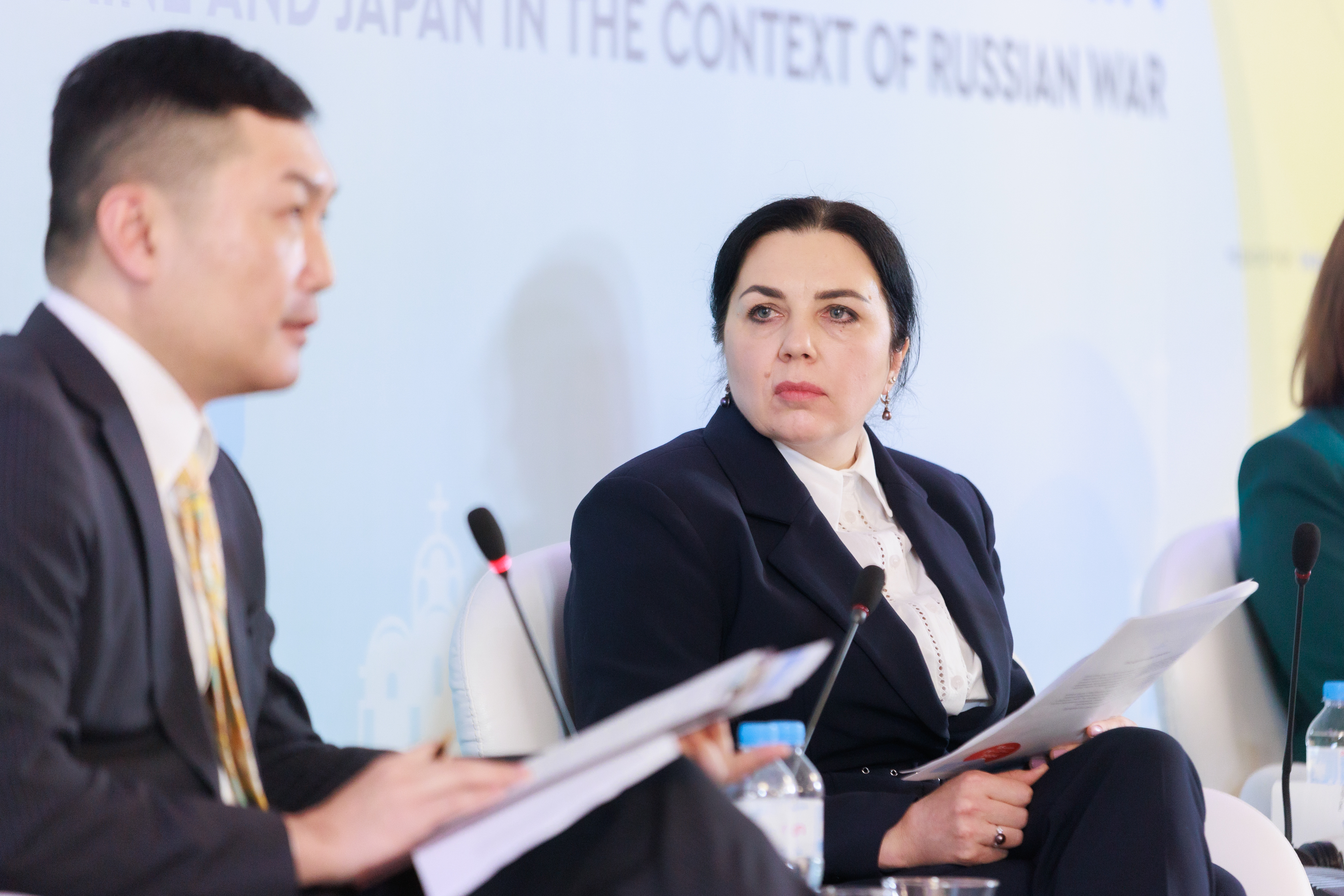
Nataliya Butyrska, Visiting Senior Fellow, New Europe Center:
Each time during the next Forum, the dynamics of how Ukrainian-Japanese relations show strength and strength is traced. If before the full-scale invasion Japan had always been a reliable friend and partner of Ukraine, now we can say that bilateral relations are tested by war.
A special global partnership relies on values. They make Japanese-Ukrainian relations strong. For comparison, last year, when Prime Minister Fumio Kishida arrived in Ukraine, Xi Jinping came to Moscow with him. This is a serious parallel, which drew the attention of both experts and journalists, and on which Ukraine must constantly rely building its relations with China.
Japan is also an important partner that provides assistance at the state level and a country that is in fourth place in terms of directed budget support for Ukraine.
Japan realizes perhaps the greatest of all the countries in the region, how seriously Russia’s events and behavior in the Asian region and beyond are connected.
Japan tries to influence various processes in the region and foresee the connection in advance, to make certain alarmist signals in advance regarding the destruction of the world order, which many countries try not to see or at least not to connect.
Ukraine should also become an important partner for Japan, given how worried Japan is about global and Asian issues. Ukraine should not be afraid to assume obligations and responsibilities to its partners. That is, clearly articulate your own position. For example, with China to talk about maintaining peace in the Taiwan Strait, resolving the situation in the China Sea, while forgetting about the current position of the Celestial Empire.
Ukraine needs to increase its own added value, which should also be in view of the current changes in the world system. Production itself must be expanded to take a good place in technological supply chains for the safety of Western partners in the current technological confrontation with China. It is important for Ukraine to be a partner that helps Japan and opens doors to European markets.
There is a serious understanding that after the war it is necessary not only to rebuild, but also to make a qualitative breakthrough. This should be synergy – the help of Ukrainian partners, the interest of business, the work of authorities that minimize bureaucratic obstacles, etc.
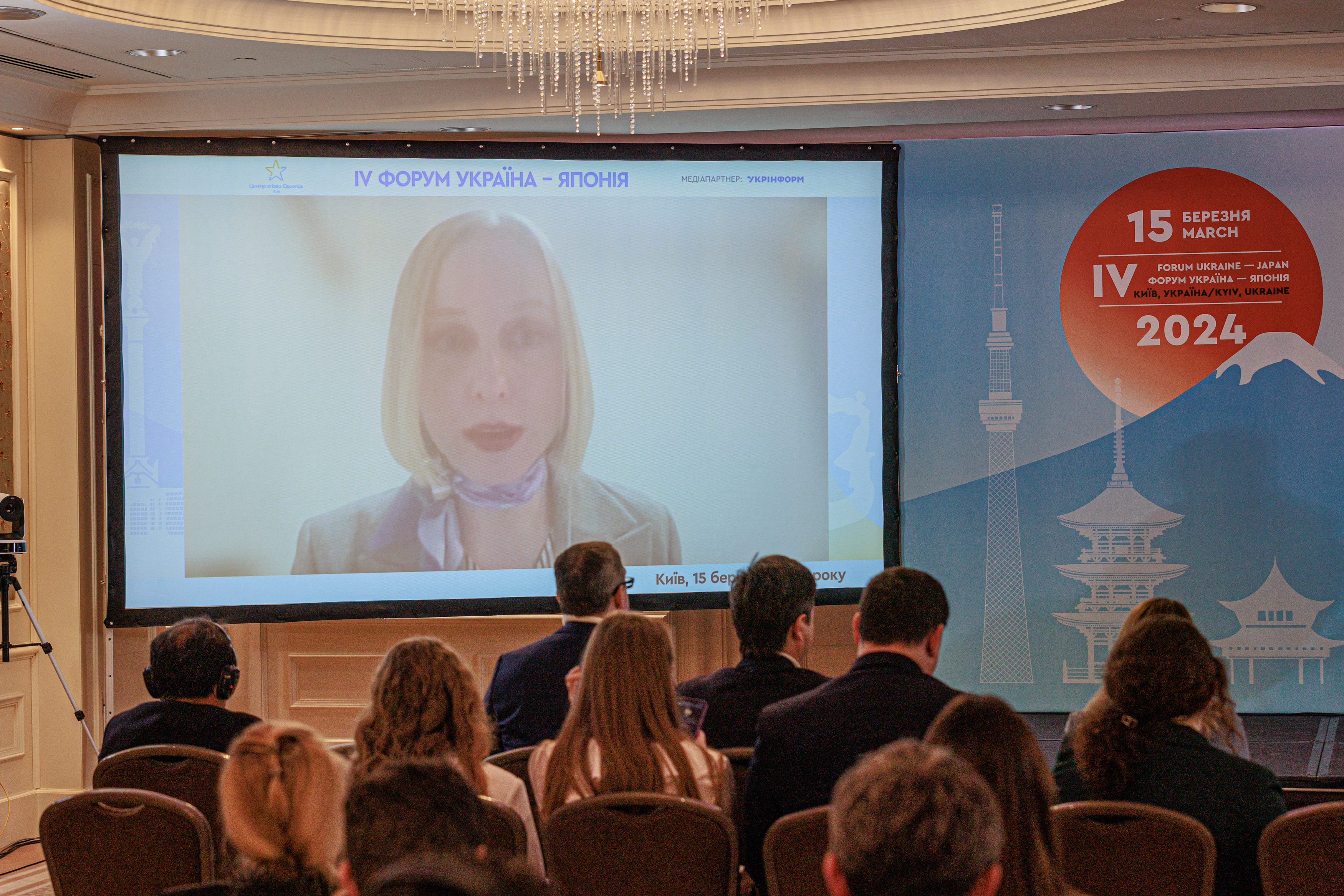
Yuliya Dzyabko, Junior Associate Professor, Ibaraki Christian University:
The full-scale phase of the war with Russia, in a matter of days, changed the image of Ukraine from the “Russian periphery” to a “sovereign country fighting for its independence.” However, Japan has just begun to get to know Ukraine in these 2 years. There is still a lot of work ahead in the academic and information fields.
In 2022, Ukraine received incredible media support. Thanks to the work of Japanese journalists and international political scientists, Ukraine in just a few weeks became “visible” in the eyes of most Japanese.
In February 2023, according to a Nikkei newspaper poll, 70% of respondents believe that the Japanese government should support Ukraine, even if it has a negative impact on their lives.
In February 2024, Fuji News Network published its own survey, where again 70% believe that Japan should continue to support Ukraine. This indicates that the level of solidarity of Japanese society with Ukrainian is invariably high.
A positive image of Ukraine forms a public demand for the study of Ukraine. Today, a growing number of universities are studying Ukrainian as a common subject. After 2022, 3 more universities were added to the other 2 universities, where they studied Ukrainian as a discipline, and the subjects “Ukrainian language” was also introduced. The largest in Japan Slavic-Eurasian Research Center opened the Department of Research of Ukraine and the surrounding regions.
The information space is influenced by the Japanese book market, which has been replenished with new literature about Ukraine – more than 40 books. Also there are works explaining some facts from the history of Ukraine. The “Dictionary of Felt” gained great publicity in the media. For several weeks, this book was a best seller in the non-fiction category.
Ukrainians registered in Japan 5 official public organizations over the past 2 years. For several times a month they hold charitable cultural events in different cities, organize exhibitions, peaceful rallies in support of Ukraine. This is a two-pronged process, because measures take place when there is a public demand, and at the same time measures allow attracting more Japanese to improve understanding of Ukraine.
It is necessary to strengthen Ukrainian information policy in Japan too. Media support for Ukraine in 2023 has decreased significantly as a result of the war between Israel and Hamas in Palestine. As a result, media attention was transformed into short, mostly political news that does not cover the complexity of the situation in Ukraine.
Japanese solidarity today is based primarily on emotional factor (sympathy and pity for the victims of the Russian war), and not on the understanding of the historical and cultural background of this war (as, say, this is felt in the Baltic countries and Eastern Europe). The Japanese still do not know the peculiarities of Ukrainian civil society and still do not understand the tragedy of Ukrainian history during the reign of Russia on our territory. Such people can be convinced by increasing historical and cultural content about Ukraine in Japanese.
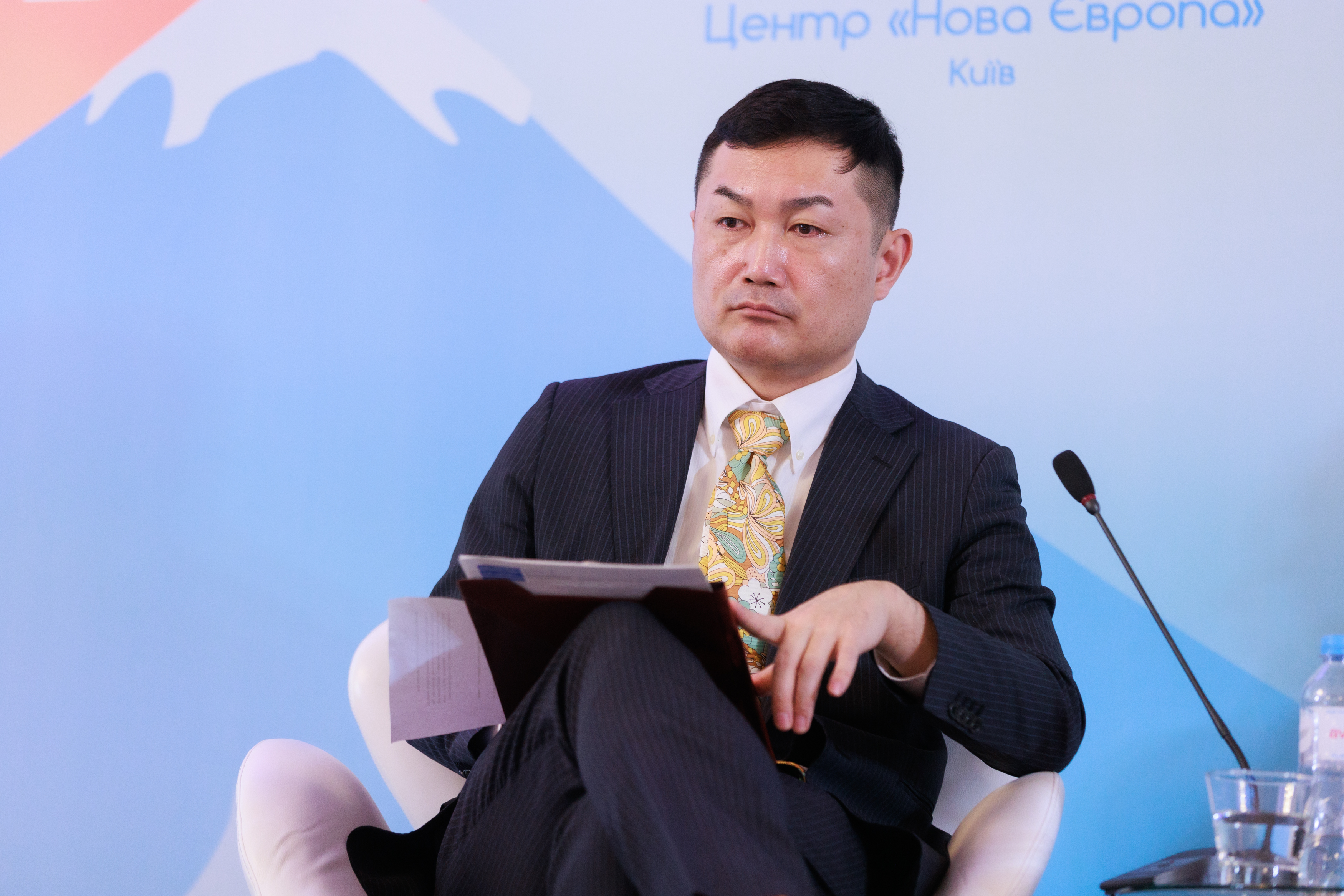
Moderator: Takashi Hirano, Head of Japan section, Ukrinform agency:
During a visit to Ukraine, Prime Minister Fumio Kishida and President of Ukraine Volodymyr Zelensky agreed to raise the status of bilateral relations to a special global partnership. However, it is not known what this status essentially means. It is worth recalling that back in 2011, Japan and Ukraine decided to call their bilateral cooperation a global partnership. For about 13 years, there has been an understanding that the essence of this partnership is not simple.
Japan has many strategic partners in the European region – Poland since 2015, Italy since 2020, Lithuania since 2022 and so on. The Indo-Pacific region has also established a strategic partnership with many countries.
Over the past year, cooperation between Japan and Ukraine has expanded significantly. However, it has not yet received strategic importance. Space remains for further steps to be called a strategic partner and to strengthen Japan’s confidence in Ukraine. In particular, this concerns the successful results of some reforms, such as judicial and others.
More about Forum and speakers` messages is here.
Video recording of the Forum is available in Ukrainian and in English.
Mediapartner – Ukrinform.






